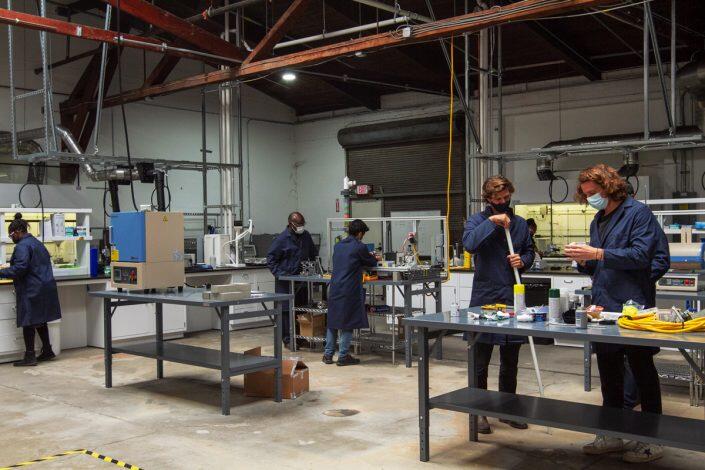Brimstone Energy is taking on a challenge of biblical proportions: producing mass-market, zero-carbon Portland cement, a key building material. If it succeeds, the implications for the real estate and construction industries are so enormous that investors have poured $55 million into the startup before it has made a single dollar.
Bill Gates’ Breakthrough Energy Ventures and DCVC co-led the Series A round, with participation from Fifth Wall’s climate tech fund, Amazon through its Climate Pledge Fund and other investors. A source familiar with the startup said the round, which closed last month, was oversubscribed, with almost $200 million of interest.
The company did not disclose a valuation, but confirmed that it had not hit unicorn status.
The deal is notable not just for its size — among the biggest Series A rounds for materials-science startups — but for where the company is in its evolution: It just raised a $5 million seed round in November, and is still pre-revenue.
Commenting on the lead investors, Brimstone CEO Cody Finke said the combination of Breakthrough — set up by Gates with the express intent of tackling climate change — and DCVC — known for its go-to-market success — sent a strong signal.
“It says that not only are we a cleantech company, but that there is a real path to market,” Finke said in an interview with The Real Deal. CNBC reported on the fundraise earlier Thursday.
The Oakland-based Brimstone will use a chunk of the funds to build a pilot plant outside of Reno, Nevada — it just closed on a site — and is looking to partner with a real estate developer on a signature project.
Because developers buy concrete rather than cement, a core ingredient in concrete, the conversations will likely involve concrete suppliers and construction and structural engineering firms, Finke said.

Brimstone’s lab (Brimstone)
Brimstone has raised the funds at a time of heightened scrutiny of the real estate industry’s culpability in the climate crisis. Many major developers and contractors are taking a closer look at their supply chains and stepping up efforts to decarbonize, and regulators are breathing down the necks of public companies, asking for greater disclosure about their climate change risks and exposure.
As a result, startups focused on decarbonizing the built world are gaining attention, and money.
Read more


The concrete-cement industry is responsible for at least 8 percent of global CO2 emissions, about the same as cars. Ordinary cement manufacturing heats limestone, which has heaps of embedded CO2. Brimstone, however, produces its cement through a process that uses calcium silicate rocks without any embedded CO2.
As the pressure to decarbonize grows, Brimstone is betting that its zero-carbon product will stand out, especially if it costs about the same.
Finke, who founded Brimstone at Caltech in 2019 with Hugo Leandri, also hinted at a potentially massive expansion market for the company: carbon negativity.
Brimstone’s process, he explained, creates a magnesium compound that can permanently sequester — that is, remove — and mineralize CO2.
“Some companies have been selling carbon credits,” he said. “We can make carbon credits.”
Write to Hiten at hs@therealdeal.com or @hitsamty on Twitter
